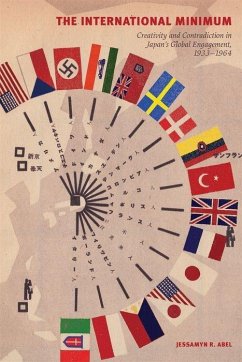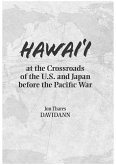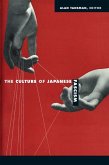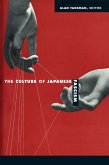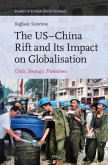The International Minimum tells the history of internationalism in Japan from the 1930s to 1960s, shedding light on the deep connections between modes of diplomacy during times of aggressive imperial expansion and of peaceful cooperation. For most of the twentieth century, a rhetoric of international cooperation for peace and stability persisted as the lingua franca of foreign relations in Japan and around the world, even during the years of rampant nationalisms and global war. The advocacy and practice of multilateral cooperation, though attenuated and often distorted and abused, did not disappear during the years of aggression and war, but instead were channeled into new and unexpected directions. With a broad view of international relations that takes into account but also looks beyond the official sites of multilateral cooperation, this book uncovers a continuous evolution of internationalist thought and activity in Japan that extends across the dark valley of war and the historiographical schism of defeat. Acknowledging this continuity does not mitigate the violence and atrocities of the wartime regime. But recognizing that institutions, activities, and rhetoric that were derived from the Wilsonian internationalism of the 1920s contributed to imperialism and war, as well as to the postwar construction of a peaceful and democratic "new Japan," does help us understand the enthusiastic participation in war and empire in the years before 1945 by many of the same people in all sectors of Japanese society who eagerly embraced postwar structures of cooperation for peace and shared prosperity. This study rethinks the standard narrative of Japan's international cooperation in three ways: by taking seriously those international activities conducted outside of formal state-level relations, by examining cultural forms of international engagement, and by asserting the importance of rhetoric in cultivating what was then referred to as an "international mind." Rather than signaling the demise of multilateral participation, Japan's infamous withdrawal from the League of Nations became, in fact, the occasion for the diversification of internationalist activities. For instance, proponents of a "people's diplomacy" campaigned to bring the 1940 Olympic Games to Tokyo and established the Society for International Cultural Relations, a national organization for international cultural exchange. But as Japanese society was increasingly mobilized for war, even such popular and cultural efforts at international cooperation were made to contribute to the imperialist project. In the decade after the war ended, familiar internationalist rhetoric became a keystone in the construction of a so-called new Japan. This book traces the evolution of the internationalist worldview in Japan by examining both official policy and general discourse surrounding epochal moments such as Japan's withdrawal from the League and admission into the United Nations, the failed and successful attempts to host a Tokyo Olympiad, and wartime and postwar regional conferences in Tokyo and Bandung, Indonesia. Bringing these varied elements together produces a synthetic history of internationalism, imperialism, and the performance of diplomacy in the twentieth century, when new global norms required a minimum level of international engagement. This story is told through the materials of both high diplomacy and mass culture. Unpublished documents in government and private archives reveal one layer of the formation of Japanese internationalism. The public discourse found in popular journals, books, newspapers, advertisements, poems, and songs articulates what would become the common-sense views of international relations that helped delineate the realm of the possible in imperial and postwar Japanese foreign policy.
Hinweis: Dieser Artikel kann nur an eine deutsche Lieferadresse ausgeliefert werden.
Hinweis: Dieser Artikel kann nur an eine deutsche Lieferadresse ausgeliefert werden.

